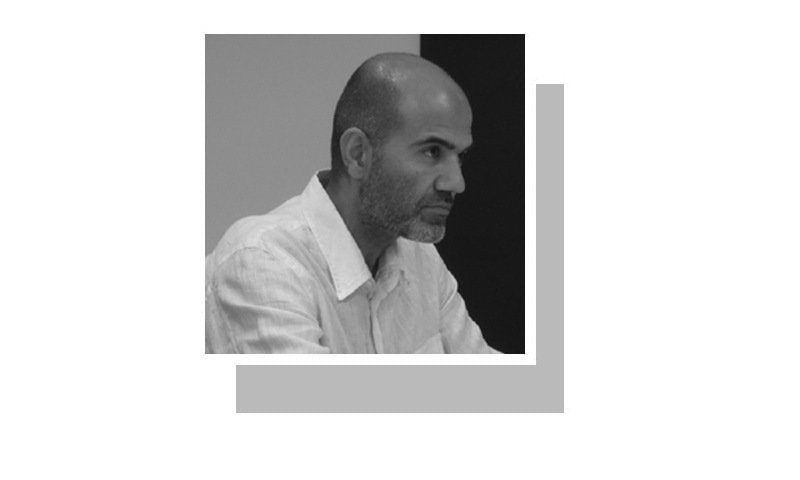AS the colossal reality of a global pandemic with no precedent in living memory unfolds in a society that is amongst the world’s least equipped to cope, the list of issues that demand attention, and decisive action, grows longer by the day.
The issues include: internet blackouts in large parts of Balochistan and the merged tribal districts of KP at a time when real-time information is vital; political prisoners (not to mention the disappeared) still in jails which are potentially breeding grounds for the coronavirus; a largely unaccountable clergy that continues to put many lives at risk; and the fact that some state functionaries are brutalising workers still out on the streets because they need to find a way to feed themselves and their children.
The last point demands interrogation of the government’s relief package, and particularly the matter of cash transfers to the ‘most needy’ under the BISP/Ehsaas programme — measures must be undertaken for these payments to actually reach their intended beneficiaries given how the most vulnerable segment of our working class is not formally documented in any meaningful way and/or migrates seasonally in search of income-generating work. Even a few days into the pandemic, a social crisis is brewing because the state has not delivered on its promises of relief.
There are many other pressing concerns that reflect both deep-seated inequities of power and wealth that are being magnified by Covid-19 and flaws in the state’s immediate response. But more than anything else – in part because it illuminates the silver lining in this unprecedented crisis — it is necessary to call attention to those who are front and centre of the effort to save lives in our hospitals, along with the many other essential workers whose virtually invisible labour is proving to be more important than anything else in this country’s arsenal.
There’s little protection for our health workers.
First: the doctors and nurses. The wilful neglect of public health for most of Pakistan’s existence means that we are incapable of providing our healthcare providers the protective gear to perform their jobs at times like these. Nor do we have equipment to treat those who are ill. Pakistan is certainly not the only country in which healthcare providers are suffering for of a lack of preparedness, but that is hardly cause for celebration.
Yet the doctors and nurses, and all other non-medical staff, carry on. Some, like Osama Riaz in Gilgit-Baltistan, have lost their lives. Many others have fallen ill, most prominently doctors in Balochistan where public health infrastructure — and resources allocated to it — is particularly sparse. A number of videos of policemen offering doctors ‘salutes’ circulated online some days ago; those higher up the political food chain ought to fast-track delivery of personal protection equipment to supplement the invaluable labour that doctors are expending, rather than focus on performative gimmicks.
I want to make special mention of nurses. It is an open secret that the extremely high percentage of Christian nurses in our public hospitals reflects the unnamed practice of caste discrimination. Sanitary workers employed by municipal authorities across the country are also disproportionately Christian. Telling, is it not, that a community subjected to apartheid in ‘normal’ circumstances is so crucial to the effort to save innumerable, primarily Muslim, lives?
These working doctors, nurses and others providing essential services embody, along with thousands of volunteers who have stepped up to fill the absence of formal health systems and social safety nets, a collective will that is otherwise lacking in Pakistan’s public life. The alternative imaginary of society offered by these many different people cannot offset the sheer lack of leadership at the highest levels of government, but it does provide some political voice along with immediate relief to those at the bottom rung of our unequal social ladder.
The most deprived segments will have to cope with immense suffering and massive dislocation as the pandemic unfolds. As has already been repeated many times in the past two weeks, if the virus doesn’t get them, economic ruin will. That the prime minister has dithered so much over how to tackle the crisis because of his ostensible concern for the poor is neither here nor there. Yes, the situation is immeasurably difficult, but such situations make clear why those in glass houses should not throw stones.
Perhaps I should not be so cruel on the present incumbents. Our health infrastructures and so many other basic services are as emaciated as they are for structural reasons that precede the current dispensation. When we do emerge on the other side of Covid-19, we must pledge to overhaul the sacred cow that is the political economy of defence so that our most valuable workers are better prepared when the next crisis rolls around.
The writer teaches at Quaid-i-Azam University, Islamabad.
Published in Dawn, April 3rd, 2020













































